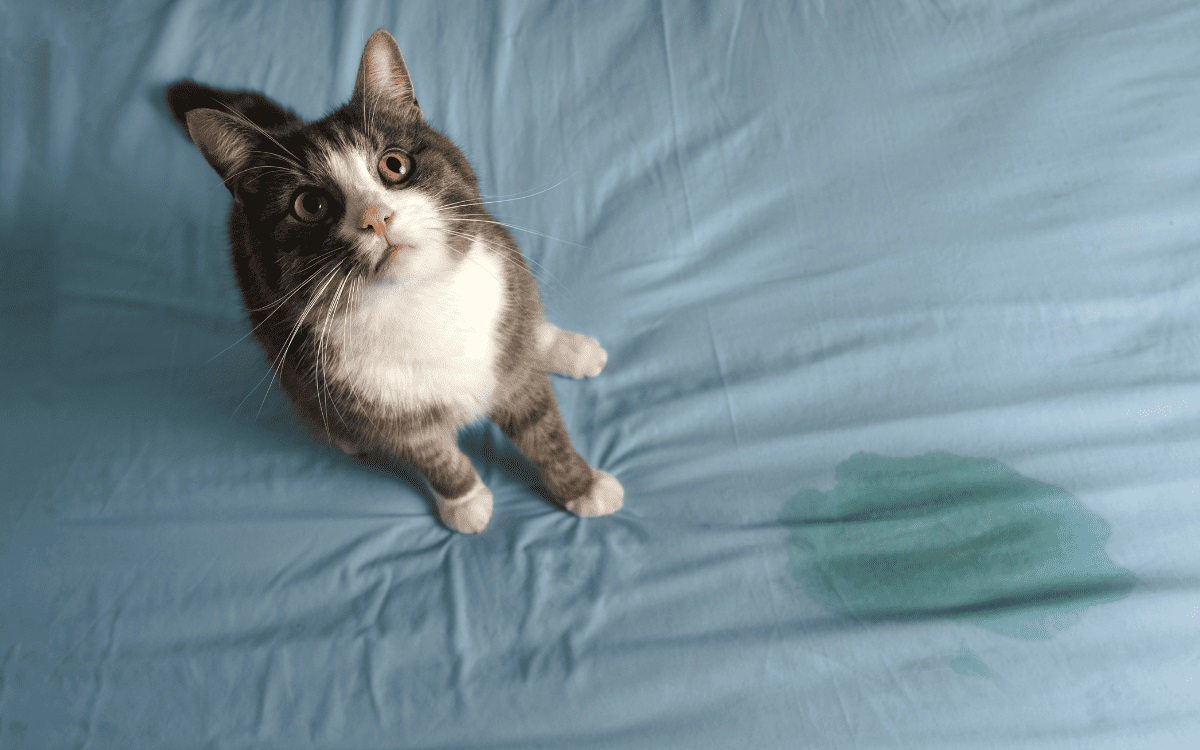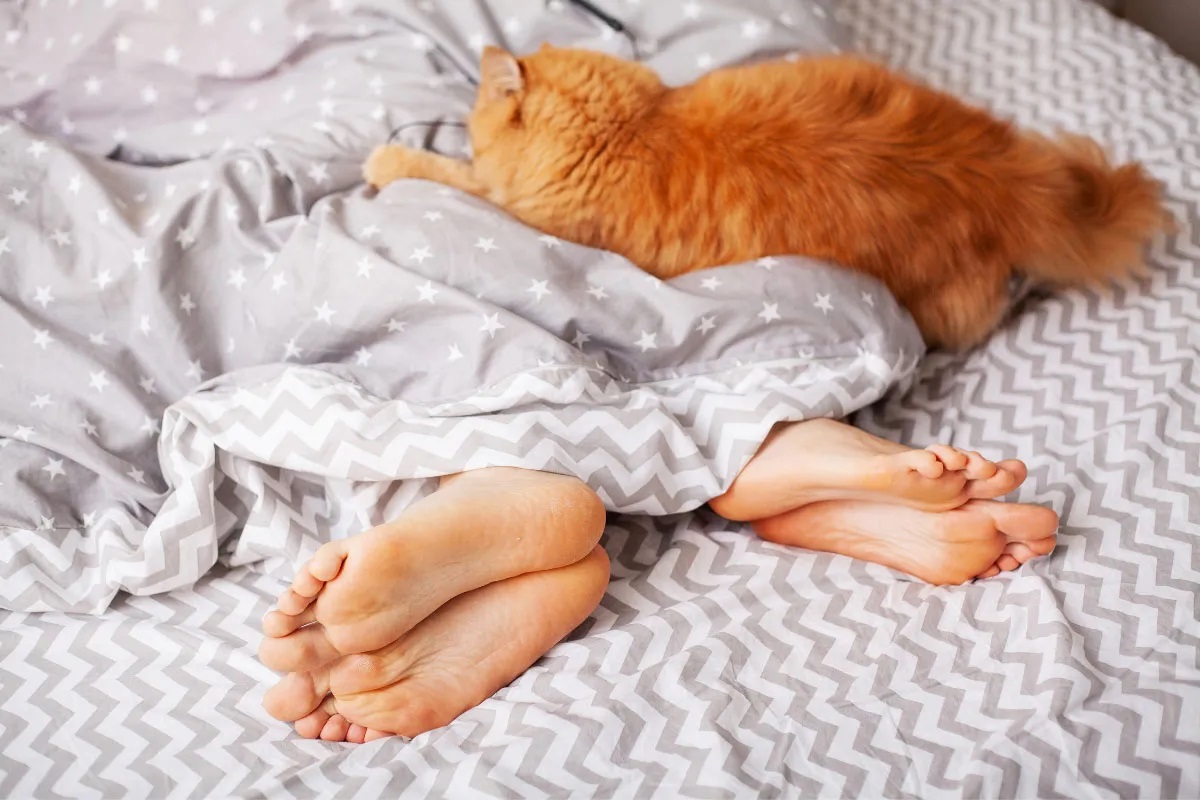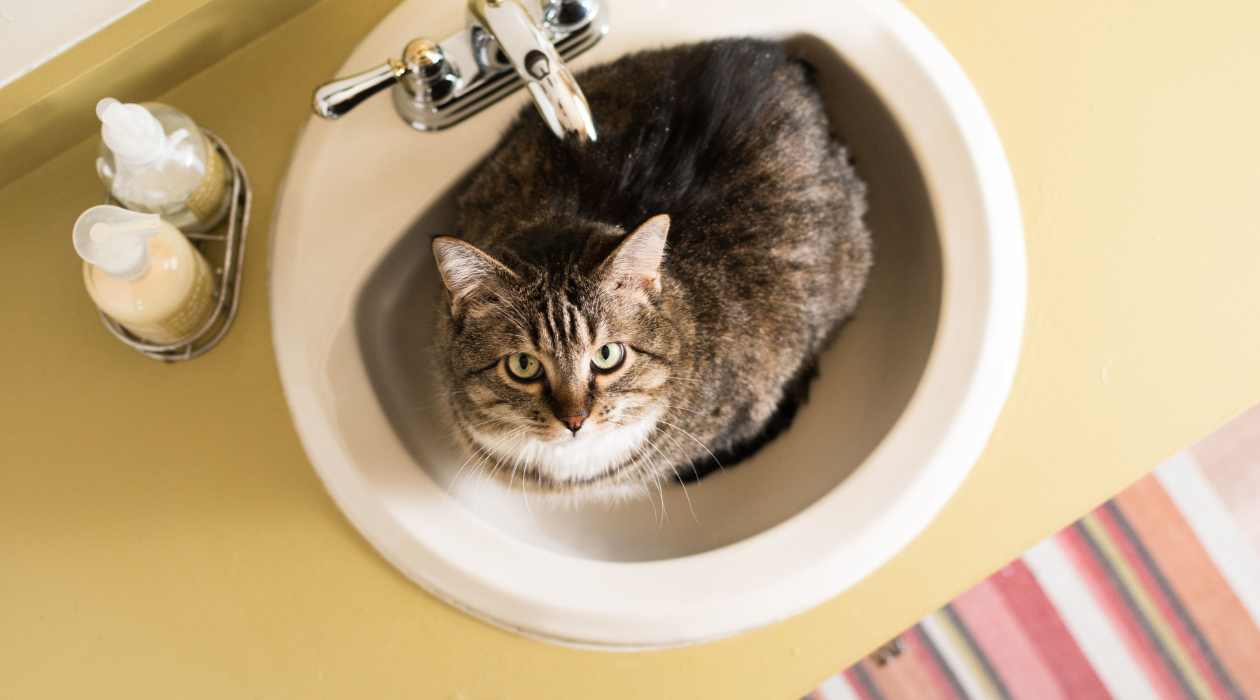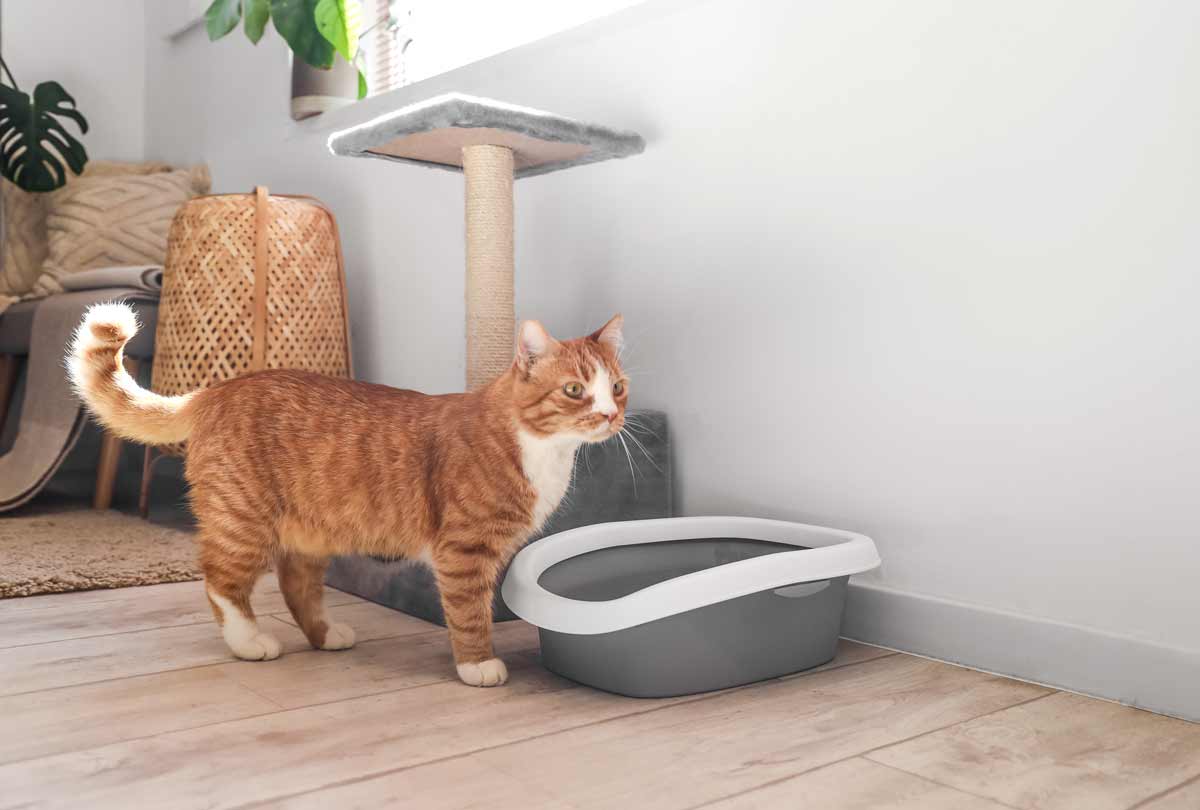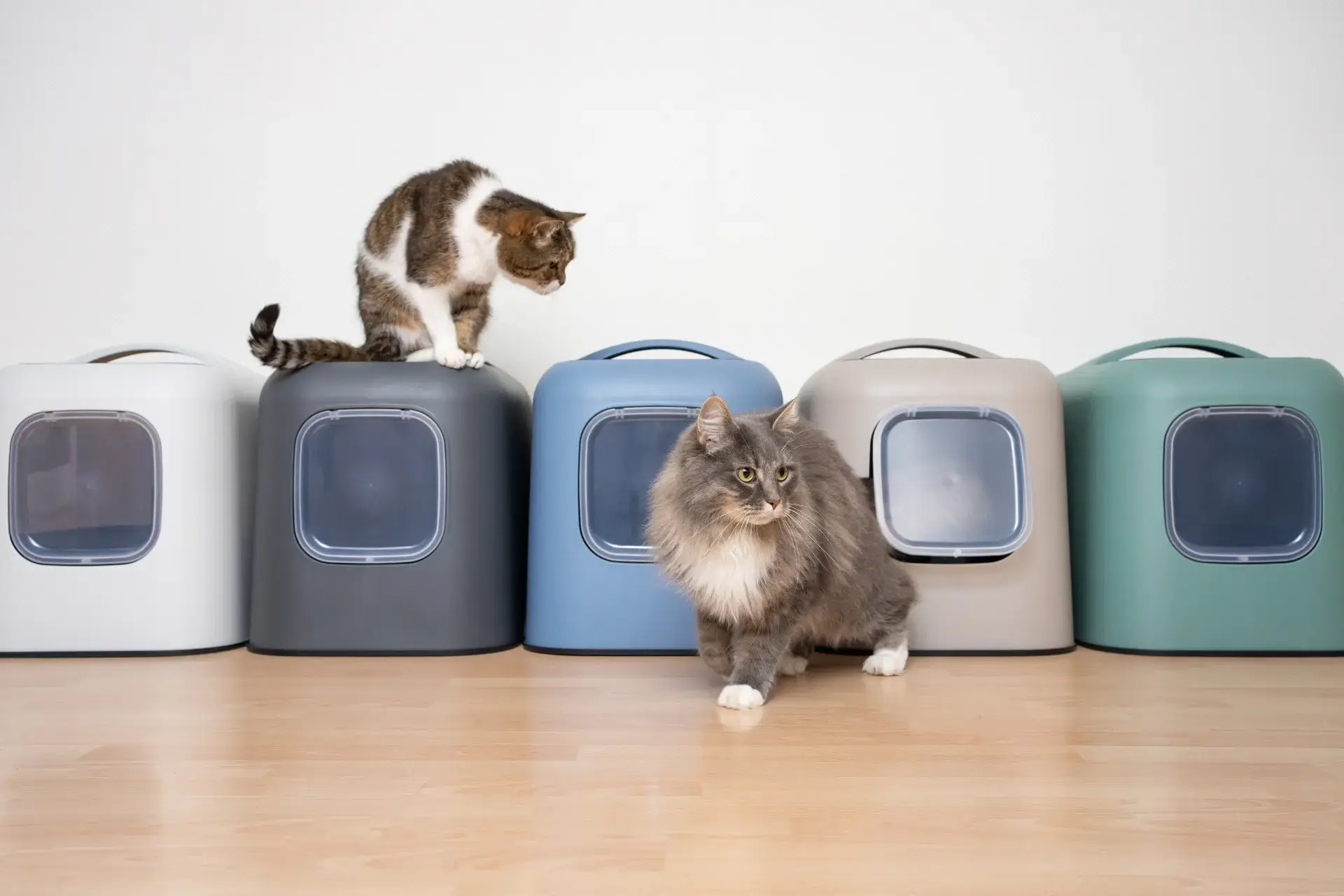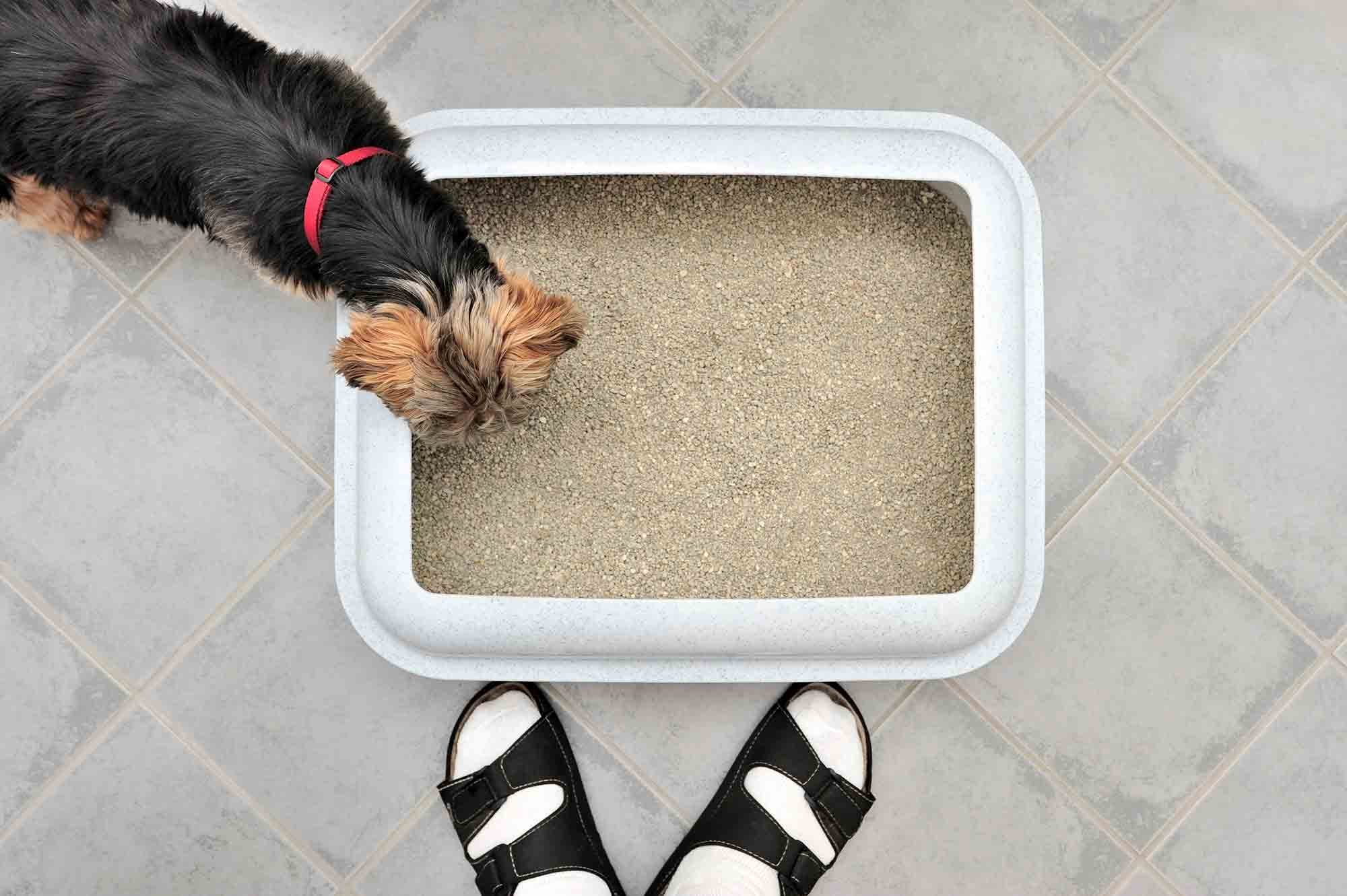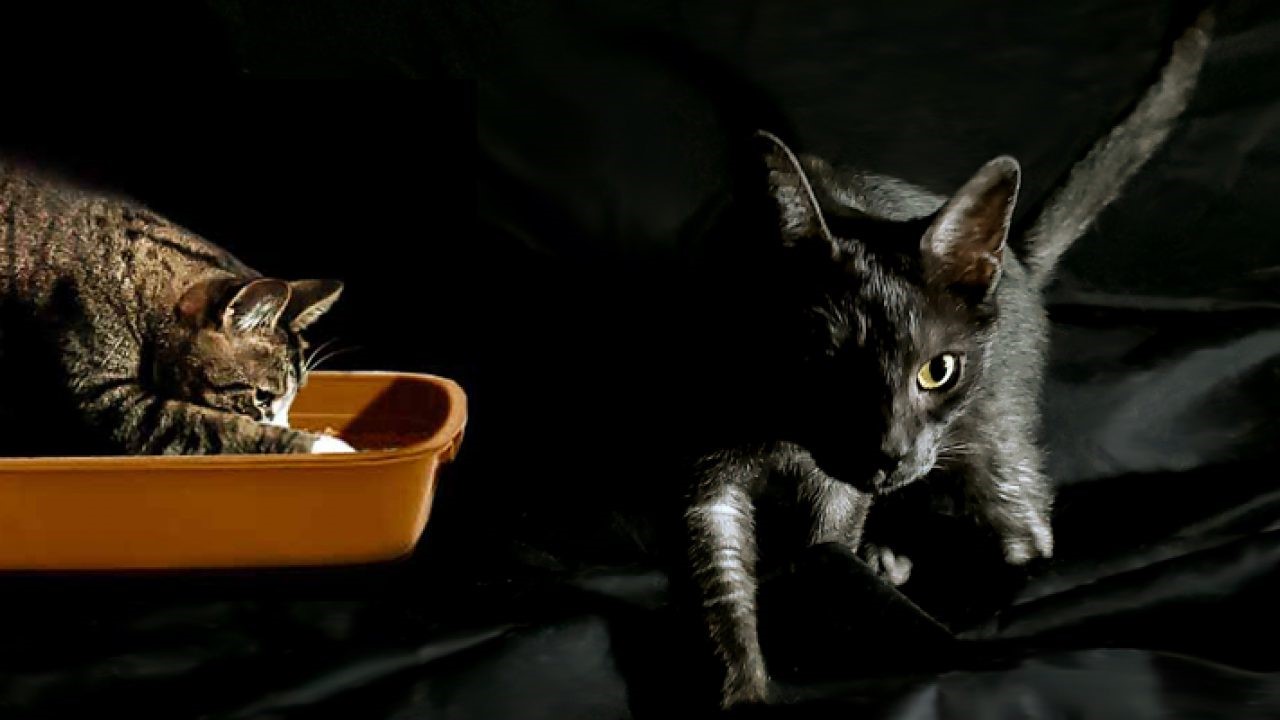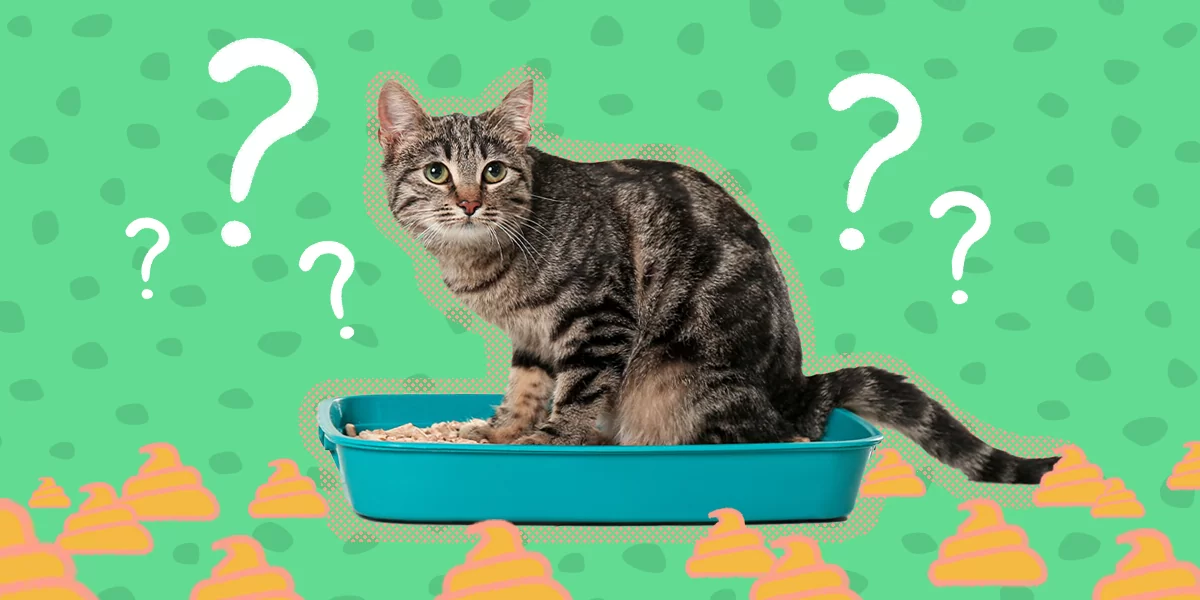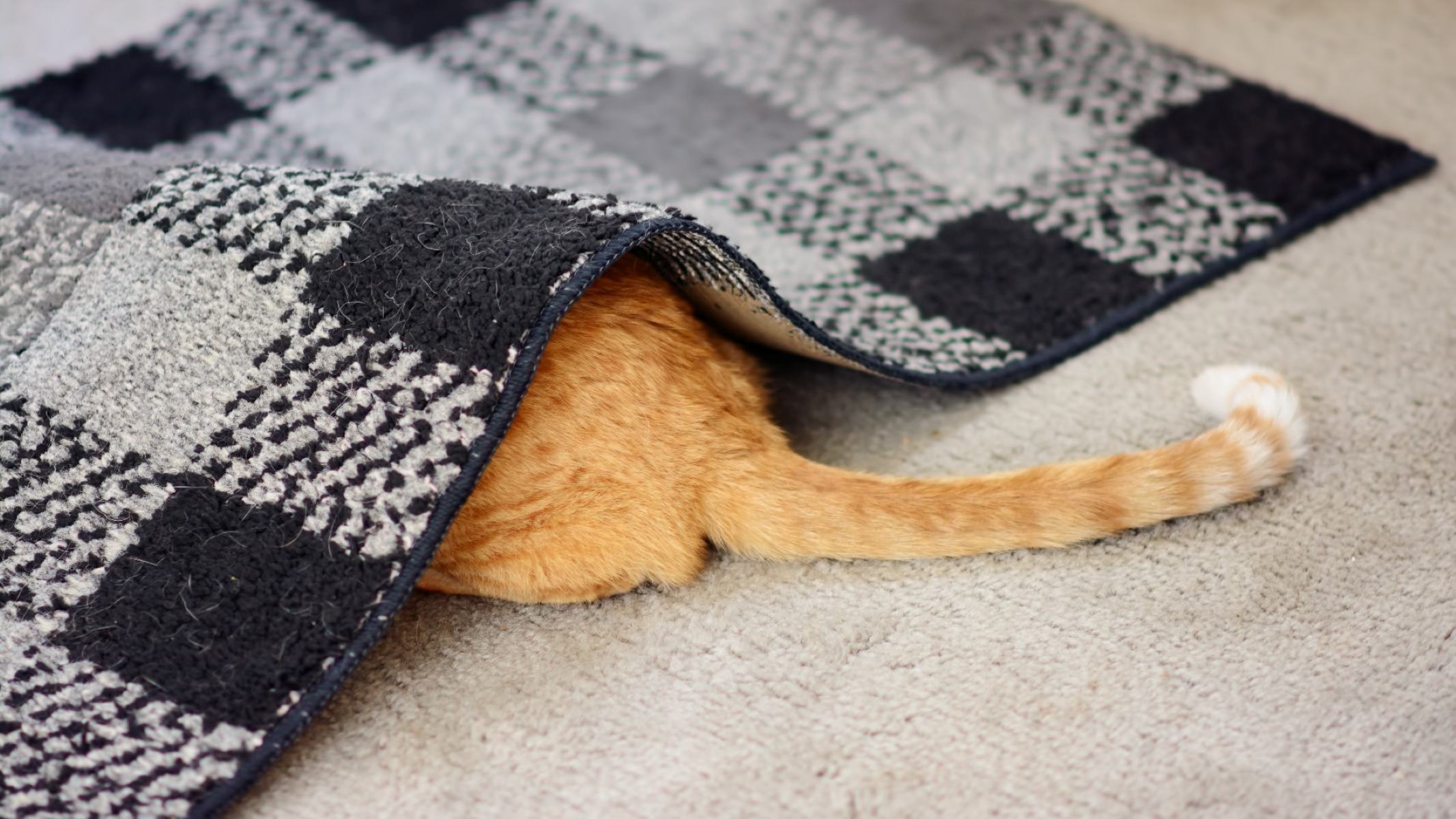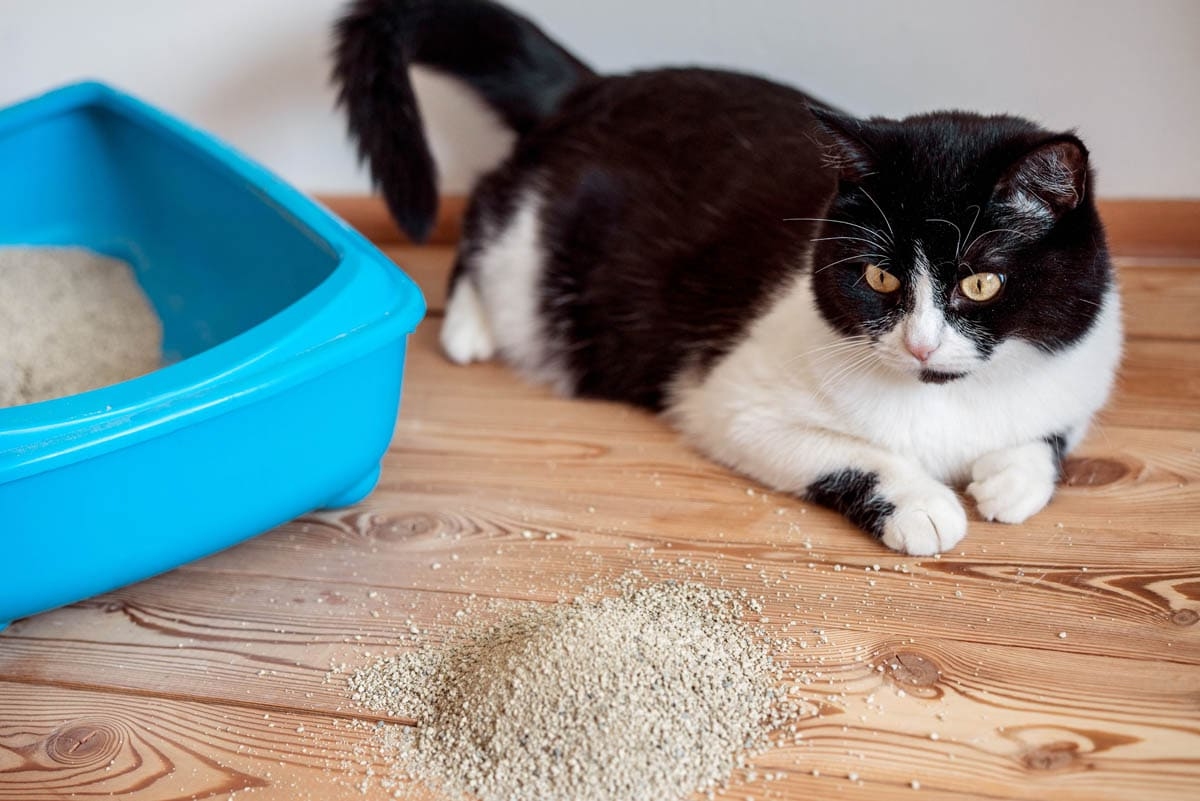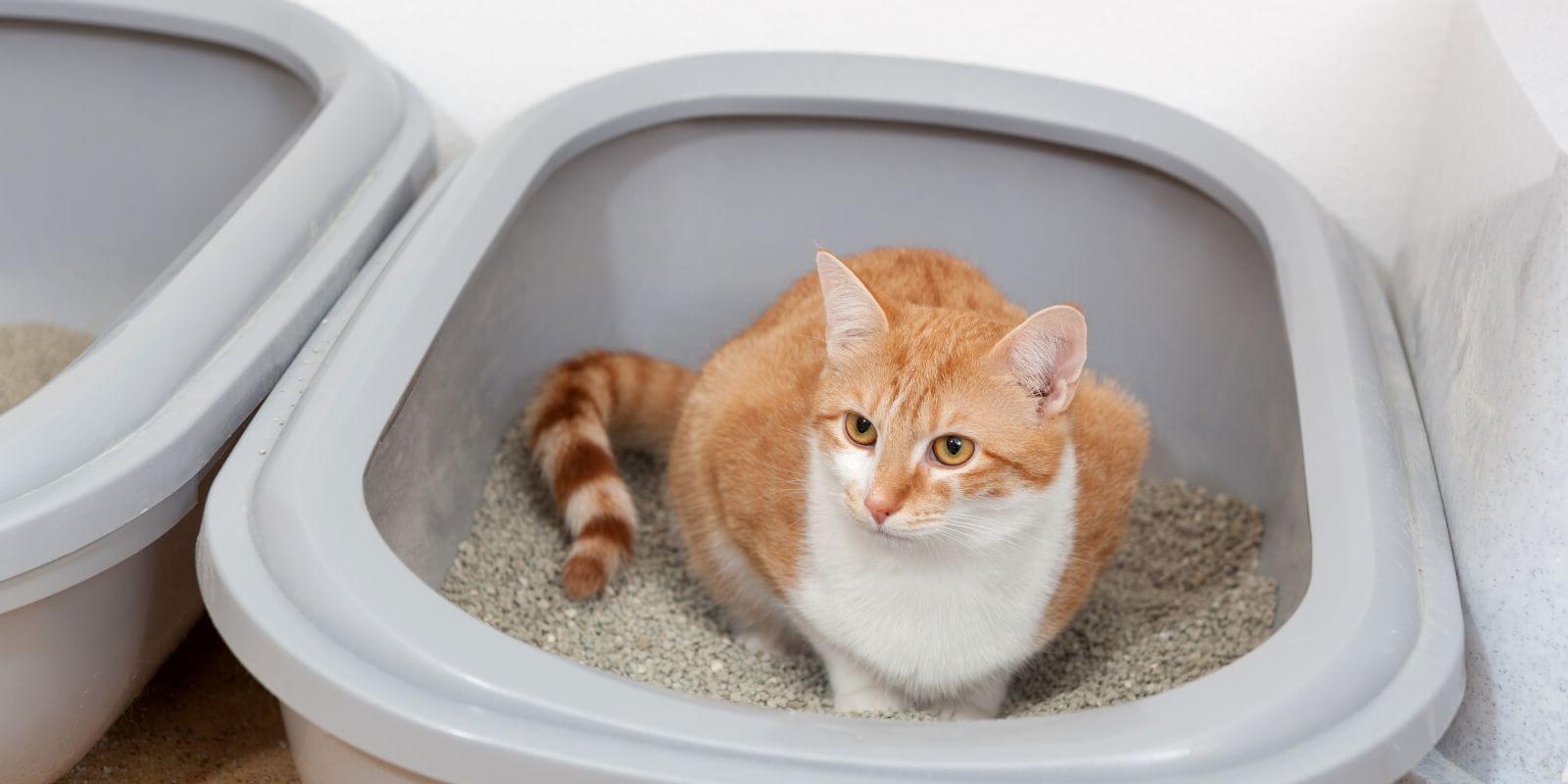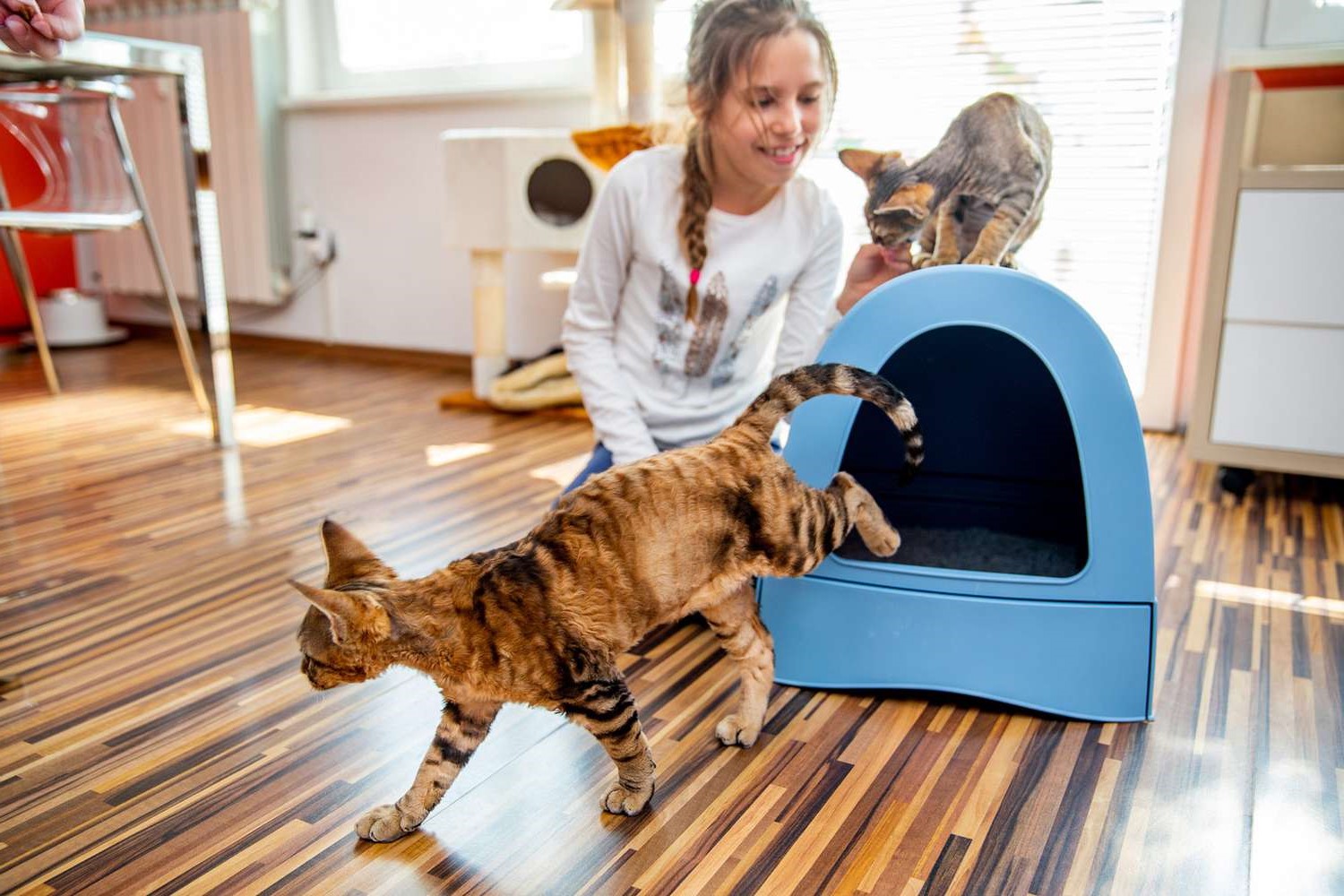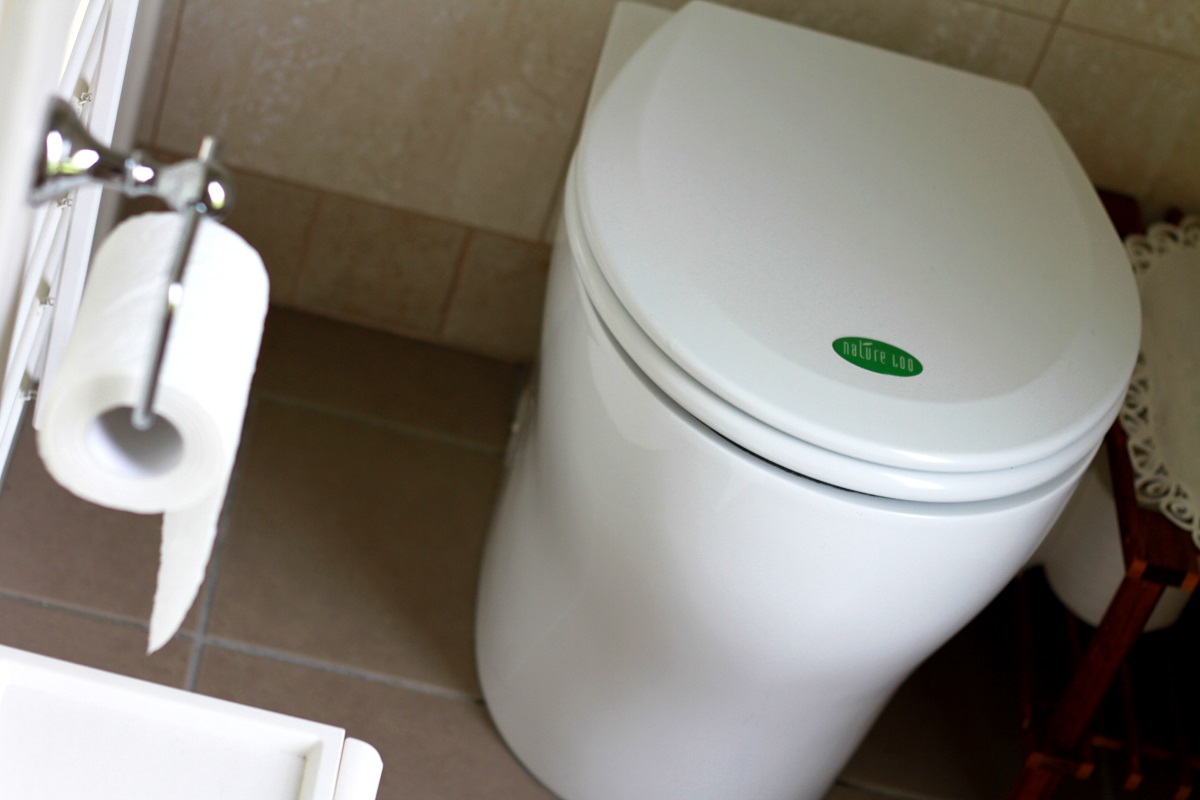Home>Furniture>Bedroom Furniture>Why Is My Cat Pooping On My Bed
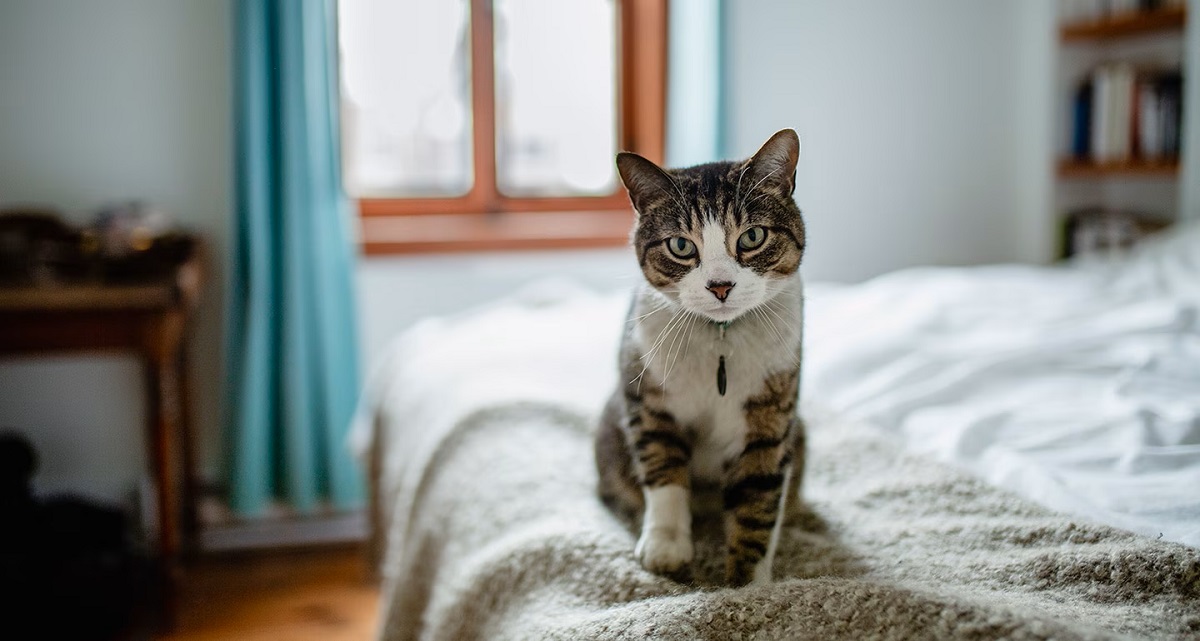

Bedroom Furniture
Why Is My Cat Pooping On My Bed
Modified: January 5, 2024
Discover why your cat is pooping on your bed and learn how to stop this behavior with our helpful guide. Transform your bedroom furniture into a cat-friendly space today!
(Many of the links in this article redirect to a specific reviewed product. Your purchase of these products through affiliate links helps to generate commission for Storables.com, at no extra cost. Learn more)
Introduction
There’s nothing more frustrating than waking up to find your beloved feline friend has left a surprise on your bed. While it may be tempting to scold or punish your cat, it’s important to understand that this behavior is not a deliberate attempt to upset you. Cats are creatures of habit and often exhibit this unwanted behavior for a variety of reasons.
In this article, we will explore the possible reasons why your cat may be pooping on your bed and discuss potential solutions to prevent this behavior from occurring again. By understanding the underlying causes and implementing appropriate strategies, you can restore harmony within your home and enjoy a clean and odor-free bedroom.
Key Takeaways:
- Understand your cat’s behavior and address potential medical, environmental, and litter box issues to prevent them from pooping on your bed. Creating a calm and secure environment is crucial for your cat’s well-being.
- Consistency, patience, and positive reinforcement are key in modifying your cat’s behavior. Seek professional guidance if needed and consider medical interventions to address any underlying health issues.
Read more: Why Does My Cat Poop In My Bathtub?
Understanding the Behavior
Before addressing the issue of your cat pooping on your bed, it’s important to gain an understanding of why this behavior occurs. Cats are known for their fastidious nature, meticulously grooming themselves and seeking out a clean and suitable place to relieve themselves. When a cat starts pooping outside of the litter box, it indicates that something is amiss.
One possible reason for this behavior is that your cat may be experiencing a medical issue. Cats may associate the litter box with pain or discomfort, leading them to search for alternative places to relieve themselves. It’s essential to rule out any underlying health problems by scheduling a visit to the veterinarian.
Environmental factors can also play a role in a cat’s decision to use your bed as a litter box. Cats are creatures of habit and can become stressed or anxious due to changes in their environment. These changes may include the introduction of a new pet or family member, rearranging furniture, or even something as seemingly insignificant as a change in the scent of your detergent.
Additionally, cats are territorial animals. They use scent marking as a way to establish and maintain their territory. If your cat feels threatened or insecure, they may resort to marking their territory by pooping on your bed. It’s important to identify any potential triggers that may be affecting your cat’s sense of security.
Another factor to consider is attention-seeking behavior. Cats are intelligent creatures and may develop strategies to grab your attention. If they feel neglected or perceive that they are not receiving enough love and affection, they may resort to extreme measures such as pooping on your bed to get your attention.
Understanding the underlying reasons behind this behavior is crucial in finding a solution. By delving deeper into your cat’s behavior and considering their overall well-being, you can begin to address the issue and find a resolution.
Possible Medical Causes
When dealing with a cat that is pooping on your bed, it is essential to rule out any potential medical issues that may be causing this behavior. Cats may associate the litter box with pain or discomfort, leading them to seek out alternative places to relieve themselves.
There are several medical conditions that can contribute to inappropriate elimination in cats. One common issue is urinary tract infections (UTIs). UTIs can cause discomfort and inflammation in the urinary tract, making it painful for cats to use the litter box. As a result, they may choose to eliminate on your bed or other soft surfaces.
Inflammatory bowel disease (IBD) is another condition that can lead to inappropriate elimination. Cats with IBD experience inflammation in their digestive tract, which can cause discomfort and frequent bowel movements. If they associate the litter box with this discomfort, they may choose to avoid it altogether.
Other medical causes to consider include constipation, diarrhea, gastrointestinal parasites, and anal gland problems. These conditions can all impact your cat’s bowel movements and may result in them avoiding the litter box.
If you suspect that your cat’s behavior is due to a medical issue, it is crucial to consult with a veterinarian. They can perform a thorough examination, conduct diagnostic tests, and provide appropriate treatment for any underlying conditions.
Remember, addressing the medical causes of inappropriate elimination is vital for resolving the behavior. By seeking prompt veterinary care, you can help your cat find relief from any discomfort they may be experiencing and prevent further incidents of pooping on your bed.
Environmental Factors
When a cat starts pooping on your bed, it is essential to consider the environmental factors that may be contributing to this behavior. Cats are creatures of habit and can become stressed or anxious due to changes in their surroundings.
One of the most common environmental factors is a change in the household routine. Cats thrive on predictability, and any disruption to their daily schedule can cause stress. This could include changes in feeding times, altered play times, or even a new work schedule that results in less time spent with your cat.
Another factor to consider is changes in the physical environment. Cats are highly sensitive to scents, so something as minor as switching laundry detergents or bringing in new furniture can trigger anxiety and lead to your cat pooping on your bed.
The introduction of a new pet or family member can also be a significant stressor for cats. Cats are territorial animals and may feel threatened by the presence of a new pet or individual in their space. This perceived invasion of their territory can cause them to react by eliminating outside of the litter box.
Additionally, cats may feel stressed if they do not have a designated space of their own. Cats require a sense of security and a place where they can retreat and relax. If they do not have a comfortable and safe space within the home, they may seek out alternative areas, such as your bed, to fulfill this need.
To address these environmental factors, it is important to create a calm and stable environment for your cat. Stick to a consistent routine, avoid sudden changes, and provide your cat with their own space that includes a cozy bed, scratching post, and toys.
Additionally, consider using pheromone diffusers or sprays, such as Feliway, which emit calming pheromones to help reduce your cat’s stress and anxiety.
By understanding and addressing the environmental factors that may be contributing to your cat’s behavior, you can create a more relaxed and harmonious atmosphere that encourages them to use the litter box consistently.
Changes in Routine
Cats are creatures of habit and thrive on routine. When there are significant changes in their daily routine, it can cause stress and lead to inappropriate elimination, such as pooping on your bed.
Common changes in routine that can affect your cat include alterations in feeding times, inconsistent play or exercise routines, and disruptions in their sleep schedule. Cats rely on these routines for a sense of security and stability, so any disruptions can unsettle them.
For example, if you suddenly start feeding your cat at different times each day, they may become anxious and uncertain about when they will receive their next meal. This can create stress and lead to inappropriate elimination behaviors. It is essential to establish a consistent feeding schedule and stick to it as much as possible.
Inconsistent play or exercise routines can also impact your cat’s behavior. Cats require mental and physical stimulation to stay happy and healthy. If their playtime is sporadic or if they are not getting enough exercise, they may become bored and restless. This can contribute to inappropriate elimination as your cat seeks alternative ways to relieve their pent-up energy.
Disruptions in your cat’s sleep routine can also cause stress and result in pooping on your bed. Cats are known to be creatures of routine and have specific places where they like to sleep. If their usual sleeping spot is disrupted or if they are constantly being disturbed during their rest, they may become anxious and choose to eliminate on your bed instead.
To address changes in routine, it is important to establish a consistent schedule for feeding, playtime, and sleep. Stick to these routines as closely as possible and provide your cat with ample opportunities for exercise and mental stimulation.
By minimizing disruptions and maintaining a predictable routine, you can help alleviate stress and create a more stable environment for your cat, reducing the likelihood of them pooping on your bed.
Read more: Why Does My Cat Keep Pooping On The Carpet
Litter Box Issues
One of the most common reasons why a cat may start pooping on your bed is due to issues with the litter box. Cats are naturally clean animals and have specific preferences when it comes to their litter box.
First and foremost, the litter box may not be clean enough for your cat’s liking. Cats have a highly developed sense of smell, and a dirty litter box can be extremely off-putting to them. If the litter box is not cleaned regularly, your cat may choose to find a cleaner and more inviting spot, such as your bed, to relieve themselves.
Similarly, some cats have specific preferences when it comes to the type of litter used. They may dislike the texture, scent, or consistency of a certain brand or type of litter. Experimenting with different types of litter and observing your cat’s preferences can help ensure that they are more inclined to use the litter box consistently.
The location and accessibility of the litter box can also play a role in your cat’s decision to eliminate outside of it. If the litter box is situated in a noisy or high-traffic area, your cat may feel uncomfortable and seek out a more secluded spot, such as your bed. Additionally, if the litter box is difficult for your cat to access, especially for older or disabled cats, they may opt to go elsewhere.
The size and design of the litter box can also be a factor. Some cats prefer larger litter boxes that give them more space to move around, while others may prefer covered litter boxes for added privacy. It’s important to consider your cat’s preferences and provide a litter box that suits their needs.
To address litter box issues, start by ensuring that the litter box is cleaned regularly, ideally scooping it at least once a day and completely changing the litter on a weekly basis. Experiment with different types of litter to find the one that your cat prefers, and make sure the litter box is located in a quiet and easily accessible area.
Providing multiple litter boxes in different areas of your home can also help if you have a multi-level or large living space. This ensures that your cat always has convenient access to a clean and inviting litter box.
By addressing any litter box issues and making it as appealing and convenient as possible for your cat, you can greatly reduce the chances of them choosing to poop on your bed.
Ensure your cat’s litter box is clean and easily accessible. Cats may avoid the litter box if it’s dirty or in a hard-to-reach location. Also, consider any recent changes in the household that may be causing stress for your cat.
Stress and Anxiety
Stress and anxiety can have a significant impact on a cat’s behavior, including their choice to poop on your bed. Cats are sensitive animals and can easily become stressed by various factors in their environment.
One common source of stress for cats is changes in their environment, such as the introduction of a new pet, a move to a new home, or even rearranging furniture. These changes can disrupt their sense of familiarity and security, leading to anxiety and inappropriate elimination behaviors.
Other factors that can contribute to stress and anxiety in cats include loud noises, excessive visitors, and conflicts with other animals in the household. Any situation that causes your cat to feel threatened or on edge can result in them seeking out alternative locations, like your bed, to relieve themselves.
Separation anxiety can also be a significant source of stress for cats. If your cat becomes overly attached to you and experiences separation anxiety when you are not around, they may exhibit inappropriate elimination behaviors as a way to cope with their anxiety.
To help reduce stress and anxiety in your cat, create a calm and secure environment. Provide them with their own safe space, complete with comfortable bedding, toys, and scratching posts. Consider using pheromone diffusers or sprays, which release calming scents that can help reduce anxiety in cats.
Establish a routine that includes regular playtime and bonding sessions with your cat. Engaging in interactive play and providing mental stimulation can help alleviate stress and anxiety in your feline friend.
If your cat is experiencing severe anxiety or stress, consult with a veterinarian or a professional animal behaviorist. They can provide guidance and recommend appropriate behavior modification techniques or medications, if necessary, to help manage your cat’s stress and anxiety.
By addressing and minimizing stress and anxiety in your cat’s life, you can significantly reduce the likelihood of them using your bed as a substitute litter box.
Marking Territory
One possible reason why your cat may be pooping on your bed is marking territory. Cats are territorial creatures, and they use scent marking as a way to communicate and establish their territory.
When a cat feels threatened or insecure, they may engage in marking behavior to create a sense of familiarity and ownership. By leaving their scent on your bed, they are effectively marking it as their territory.
There are several factors that can trigger marking behavior in cats. The presence of other pets in the household, whether they are new additions or resident animals, can cause your cat to feel the need to assert their territory by eliminating on your bed.
Changes in the household, such as moving to a new home or the arrival of a new family member, can also contribute to marking behavior. Cats may feel stressed or insecure during these transitions, leading them to mark their territory to establish a sense of ownership and familiarity.
If your cat is marking territory, it’s important to address the underlying cause and provide appropriate interventions. One effective strategy is to ensure that your cat feels secure and confident in their own territory.
Provide your cat with designated spaces that are solely for their use, such as a cozy bed, a scratching post, or a vertical cat tree. These areas will allow your cat to claim and mark their territory in a positive and appropriate manner.
It’s also important to clean any soiled areas thoroughly to remove the lingering scent. Use an enzymatic cleaner specifically designed for pet stains to eliminate the odor completely. This will help discourage further marking behavior.
If the marking behavior persists, consult with a veterinarian or animal behaviorist for further guidance. They can provide additional strategies and interventions to address the marking behavior and help restore harmony within your home.
Remember, understanding and addressing marking behavior is essential to prevent your cat from continuing to use your bed as a territory-marking spot.
Attention-Seeking Behavior
Another possible reason why your cat may be pooping on your bed is attention-seeking behavior. Cats are smart and intuitive animals, and they may resort to extreme measures to get your attention.
If your cat is feeling neglected or believes they are not receiving sufficient love and affection, they may engage in attention-seeking behaviors, such as pooping on your bed. They know that this behavior is disruptive and will demand your immediate attention.
This attention-seeking behavior can be triggered by various factors, including changes in your routine or lifestyle. If you recently started spending less time with your cat due to work, travel, or other commitments, they may resort to drastic measures to regain your attention.
In some cases, the attention-seeking behavior can also be a result of jealousy. If you recently introduced a new pet or family member, your cat may feel threatened by the attention and affection given to the newcomer. Pooping on your bed is a way for them to express their dissatisfaction and demand your undivided attention.
To address attention-seeking behavior, it is essential to ensure that your cat feels loved and cared for. Make an effort to spend quality time with your cat, engaging in play sessions, grooming, and affectionate interactions.
Establish a consistent routine that includes dedicated bonding time with your cat. This will help alleviate any feelings of neglect and reassure your cat that they are an important part of your life.
If you have recently introduced a new pet or family member, gradually acclimate your cat to the changes. Provide them with their own space and ensure they receive plenty of attention and affection to ease any feelings of jealousy or insecurity.
It’s important to avoid scolding or punishing your cat for attention-seeking behavior, as this may escalate the issue or lead to further anxiety and stress. Instead, focus on positive reinforcement and rewarding desirable behavior.
If the attention-seeking behavior persists despite your efforts, consider consulting with a veterinarian or animal behaviorist for further guidance. They can provide additional strategies and interventions to address the attention-seeking behavior and establish a harmonious relationship with your cat.
Remember, addressing attention-seeking behavior is vital to maintaining a healthy bond with your cat and preventing them from using your bed as a means of demanding attention.
Behavioral Solutions
Dealing with a cat that is pooping on your bed can be frustrating, but there are several behavioral solutions that can help address and prevent this unwanted behavior.
1. Clean and Deodorize: Start by thoroughly cleaning any soiled areas on your bed to remove the scent and discourage your cat from returning to that spot. Use an enzyme-based cleaner specifically designed for pet stains to effectively eliminate odors.
2. Create a Positive Association with the Litter Box: Make the litter box a more enticing option for your cat. Ensure the litter box is clean and maintained regularly. Experiment with different types of litter to find one that your cat prefers. Consider placing multiple litter boxes in various locations to provide convenience and options for your cat.
3. Provide a Safe and Calming Environment: Create a calm and secure environment for your cat. Minimize disruptions and changes in routine as much as possible. Provide your cat with their own space, complete with comfortable bedding, toys, and scratching posts. Use calming pheromone diffusers or sprays to reduce stress and anxiety.
4. Establish a Consistent Routine: Cats thrive on routine, so establish a consistent schedule for feeding, playtime, and sleep. Try to stick to the same times each day. This predictability can help reduce stress and uncertainty for your cat.
5. Offer Mental and Physical Stimulation: Engage in regular interactive play sessions with your cat to provide mental and physical stimulation, especially if they are showing signs of boredom or excess energy. Use puzzle toys and provide scratching posts to keep them entertained and mentally engaged.
6. Behavior Modification Techniques: Positive reinforcement is key to modifying unwanted behaviors. Reward your cat for using the litter box consistently. Provide treats, praise, and affection when they use the litter box correctly. Avoid punishment or negative reinforcement, as it can create fear or anxiety in your cat.
7. Seek Professional Guidance: If the issue persists or if you are unsure about the underlying cause of your cat’s behavior, consider consulting with a veterinarian or animal behaviorist. They can provide expert advice, additional strategies, and tailored solutions to address the specific needs of your cat.
Remember, consistency and patience are crucial when implementing behavioral solutions. Each cat is unique, so it may take time to find the right combination of strategies that work for your furry friend. With the right approach, you can help your cat break the habit of pooping on your bed and restore a clean and harmonious living environment.
Medical Interventions
If you have tried various behavioral solutions and your cat continues to poop on your bed, it may be necessary to explore medical interventions. Medical conditions can contribute to inappropriate elimination behaviors, so it’s important to rule out any underlying health issues.
1. Veterinary Examination: Schedule a comprehensive veterinary examination to identify any potential medical causes for your cat’s behavior. The veterinarian will conduct a physical examination, review your cat’s medical history, and may recommend further diagnostic tests to assess their overall health.
2. Urinalysis and Fecal Examination: A urinalysis can help identify any urinary tract infections or kidney-related issues that may be causing discomfort and contributing to inappropriate elimination. Similarly, a fecal examination can detect any gastrointestinal issues or parasitic infections.
3. Blood Tests: Blood tests can provide valuable insights into your cat’s overall health, including evaluating organ function and identifying potential underlying conditions that may be contributing to their behavior.
4. Medications: Depending on the diagnosis, your veterinarian may prescribe medications to manage specific medical conditions. For example, if your cat has a urinary tract infection or inflammatory bowel disease, antibiotics or anti-inflammatory medications may be recommended.
5. Dietary Modifications: In some cases, dietary modifications may be necessary to address underlying gastrointestinal issues or dietary allergies. Your veterinarian may recommend a specialized diet that can help alleviate your cat’s symptoms and improve their digestive health.
6. Pain Management: If your cat is experiencing pain or discomfort, your veterinarian may prescribe pain medications to provide relief. This can help alleviate any negative associations your cat may have with using the litter box due to pain or discomfort.
It’s important to closely follow the guidance and recommendations provided by the veterinarian. Monitor your cat’s response to any medications or dietary changes and report any improvements or concerns to your veterinarian.
By addressing medical issues, you can provide relief for your cat and reduce their inclination to use your bed as a substitute litter box.
Remember, medical interventions should be pursued in conjunction with appropriate behavioral solutions to ensure a comprehensive approach to addressing your cat’s behavior. Working closely with your veterinarian will help ensure the best possible outcome for your cat’s health and well-being.
Conclusion
Dealing with a cat that is pooping on your bed can be frustrating and puzzling. However, by understanding the underlying reasons and implementing appropriate solutions, you can address this behavior and restore a clean and harmonious living environment.
Start by understanding the behavior and possible causes behind your cat’s actions. Determine if there are any medical issues that may be contributing to their behavior by consulting with a veterinarian. Rule out urinary tract infections, digestive issues, or any other health problems that could be causing discomfort or pain for your cat.
If medical issues are ruled out, consider the environmental factors that may be affecting your cat’s behavior. Changes in routine, stress, and anxiety, or even marking territory can all contribute to inappropriate elimination. Address these factors by maintaining a consistent routine, providing a secure and stimulating environment, and ensuring that your cat feels safe and secure within the home.
Specific litter box issues can also play a role in your cat’s behavior. Clean the litter box regularly, experiment with different types of litter, and ensure that the litter box is easily accessible and suitable for your cat’s preferences.
If attention-seeking behavior is the cause, make sure to spend quality time with your cat and provide them with the love and attention they need. Establish a consistent routine, reward positive behavior, and create a positive association with the litter box.
In some cases, seeking professional guidance from a veterinarian or animal behaviorist may be necessary. They can provide tailored advice, additional strategies, and, if needed, medical interventions to address your cat’s behavior effectively.
Remember, resolving this issue may require patience and persistence. Each cat is unique, and finding the right solution may take time. Through a combination of behavioral modifications, environmental adjustments, and, if necessary, medical interventions, you can help your cat break the habit of pooping on your bed and create a harmonious living environment for both you and your feline companion.
Frequently Asked Questions about Why Is My Cat Pooping On My Bed
Was this page helpful?
At Storables.com, we guarantee accurate and reliable information. Our content, validated by Expert Board Contributors, is crafted following stringent Editorial Policies. We're committed to providing you with well-researched, expert-backed insights for all your informational needs.
